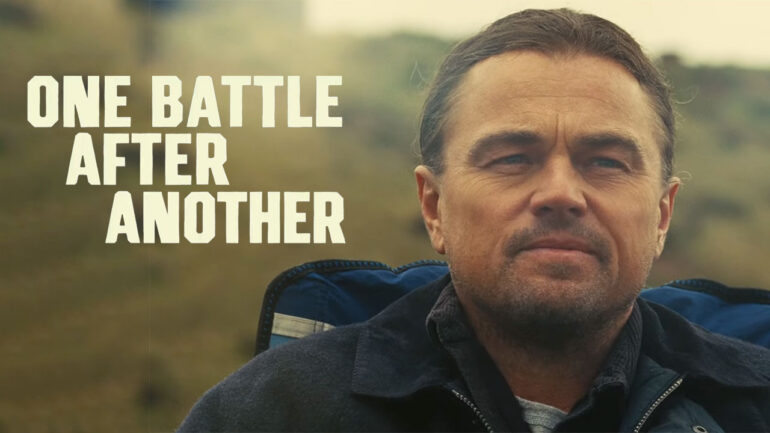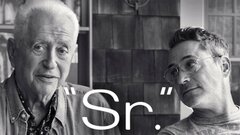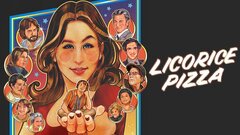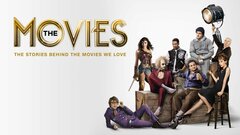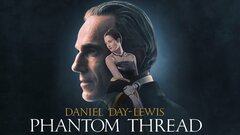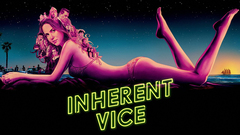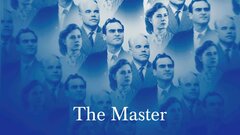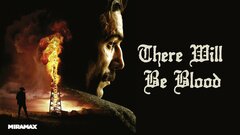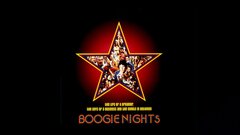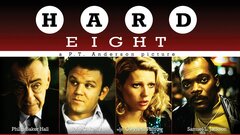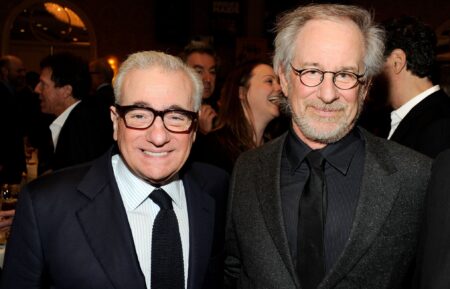From the debut of his short film "Coffee and Cigarettes" at the 1993 Sundance Film Festival, Paul Thomas Anderson firmly established himself as an auteur to watch. An ambitious film that focused on five characters interacting in a Las Vegas diner, "Coffee and Cigarettes" set the mold for his later films: multiple storylines, dazzling camerawork and a detailed emphasis on dialogue and character.
Anderson was a brash and gutsy filmmaker who enjoyed tackling big themes - love, hope, family, and redemption, all often combined in biblical fashion - while paradoxically allowing them to unfold intimately onscreen. Though his first feature-length movie, "Hard Eight" (1997), failed to connect with audiences and critics, Anderson planted himself on the Hollywood map for good with "Boogie Nights" (1997), a surprisingly affectionate, albeit dark, look at the porn industry, as seen through the eyes of an eager and ambitious rising star.
He followed this breakthrough success with the polarizing ensemble drama, "Magnolia" (1999), and the wistful romantic drama, "Punch Drunk Love" (2002), both of which underscored the fact that Anderson was at the top of his game. But with his Oscar-nominated epic "There Will Be Blood" (2007), Anderson took a giant leap forward that planted him firmly in the company of Hollywood's most elite filmmakers.
Anderson's next several films, religious cult tale "The Master" (2012), first-ever Thomas Pynchon screen adaptation "Inherent Vice" (2014), and 1950s-set fashion drama "Phantom Thread" (2017), proved Anderson to be one of the most eclectic and original filmmakers of his generation.
Born on June 26, 1970 in Studio City, CA, Anderson was raised in a showbiz household. His father, Ernie, was a successful voiceover artist, best known for being the announcer on "The Love Boat" (ABC, 1977-1986). At nine years old, Anderson stumbled across his father's pornographic video tapes, sparking an interest that later came to fruition later in life. His dad, meanwhile, gave him a Betamax camera when Anderson was 12, which he used to make amateur films.
Never one to be interested in school, Anderson was forced to leave the upscale Buckley School after the sixth grade due to fighting and poor grades. He managed to graduate from Montclair College Prep, only to drop out from Emerson College after two semesters as an English major. It was during high school, however, that Anderson made his first substantial film, "The Dirk Diggler Story" (1988), a 30-minute tale centered on a well-endowed porn star, a la John Holmes, trying to break into the business; a precursor to what eventually would become "Boogie Nights."
After high school, Anderson spent the better part of two days at New York University where he took a screenwriting class and subsequently dropped out due to the school's stodgy and formulaic approach. Knowing he was going to leave NYU, Anderson submitted pages from David Mamet's 1992 crime drama "Hoffa" as a gag, just to see what would happen. He received a C-minus. Anderson soon returned home to Southern California, where he began working as a production assistant on a television game show for kids called "Quiz Kid Challenge" (syndicated, 1990-91).
After meeting actor Philip Baker Hall while working on a PBS special, Anderson directed the actor in "Coffee and Cigarettes" (1993), a 20-minute short about five people whose lives suddenly intersect in a Las Vegas diner. Anderson was admitted to the Director's Lab at the Sundance Institute, where he expanded on the short into the feature "Hard Eight" (1997), a crime thriller about a hard-bitten loser (John C. Reilly) taken under the wing of a pitying small-time gambler (Hall)."
"Hard Eight" premiered at the Cannes Film Festival in 1996 to mainly mixed reviews, thought Hall was given near-unanimous kudos for his portrayal of an older, wiser gambler nearing the end of the line. Anderson ran afoul with the studio after they recut his film without his permission, distributing a movie not in line with his original vision. Anderson made sure to voice his discontent on several occasions, telling interviews, "It was the most painful experience I've gone through."
Meanwhile, Anderson went to work on his next filming, writing a mammoth 300-page script for what ultimately become his breakthrough film, "Boogie Nights," an expansion of his 1988 short, "The Dirk Diggler Story." Though centered in the world of pornography, "Boogie Nights" was a coming-of-age story about a San Fernando Valley youth (Mark Wahlberg) with a rather large member who enters an adult film industry in the midst of undergoing the transformation from film to video.
Under the guidance of producer and father figure, Jack Horner (Burt Reynolds), and actress Amber Waves (Julianne Moore), the new star - dubbed Dirk Diggler - enjoys enormous fame, only to suffer a downfall brought about by drug addiction. Well-acted on all fronts - both Reynolds and Moore earned Oscar nominations - "Boogie Nights" firmly established Anderson as an auteur on the rise. Anticipation was high as to how Anderson would follow "Boogie Nights."
In an almost unprecedented move, New Line Cinema practically offered him carte blanche, including the coveted final cut most directors are denied. After meeting idol Francis Ford Coppola, who told him to use the moment to make whatever he wanted because it would be his last opportunity, Anderson vaulted headfirst into his next film. Inspired by the songs of Aimee Mann, he wrote the script for what became "Magnolia" (1999), a sprawling, engaging and sometimes befuddling look at several unconnected lives in the San Fernando Valley that collide through chance, human action and perhaps even divine intervention. Comparisons to another influence, Robert Altman, were inevitable; Anderson deftly layered multi-character narratives into a tapestry of near biblical proportions.
Once again using his acting favorites Philip Baker Hall, John C. Reilly, William H. Macy, Julianne Moore, Philip Seymour Hoffman and Melora Walters, Anderson succeeded in delivering an ambitious story about fate and redemption that went on to earn several award nominations, including three Oscar nods for Best Supporting Actor (Tom Cruise), Best Original Song ("Save Me" by Aimee Mann) and Best Original Screenplay. For his next film, "Punch Drunk Love" (2002), Anderson managed to keep his loquacious impulses under control in turning out a taut romantic comedy-drama about Barry (Adam Sandler), a socially inept small business owner henpecked by his seven domineering sisters who force him to constantly question his own manhood.
In a moment of loneliness and vulnerability, Barry contacts a phone sex operator who ultimately threatens to blackmail him. Desperate to do something, Barry enlists the help of one of his sisters, who fixes him up with one of her coworkers (Emily Watson). With his emotions going haywire, fluctuating from lust to doubt to uncontrollable anger, Barry becomes willing to do whatever is necessary to change and hopefully have a shot at true romance. Anderson specifically wrote the role of Barry for Sandler; a bold move considering Sandler's pedigree in low-brow comedy. Nonetheless, Anderson earned wide critical praise while winning a Best Director at the 2002 Cannes Film Festival.
Anderson also received special kudos for his ability to transform Sandler from frat boy to sympathetic romantic lead. While Anderson firmly established himself as one of Hollywood's most creatively interesting filmmakers, no one was prepared for him to make a film with such sprawling scope and rich texture as "There Will Be Blood" (2007). Loosely adapted from Upton Sinclair's Oil!, a sympathetic look at the plight of oilfield workers in turn-of-the-century California, "Blood" told the tale of Daniel Plainview (Daniel Day-Lewis), a down-and-out silver prospector who heads out to dusty Little Boston on a mysterious tip-off that leads to striking a rich vein of black gold.
But in the hardscrabble little town, a charismatic preacher named Eli Sunday (Paul Dano) stands in the way of Plainview tapping into a lucrative ocean of oil on the preacher's land. What ensues is a battle of wills, as both men struggle to resist the humiliation and deception of the other. "Blood" stood in stark contrast to Anderson's previous work, particularly in light of genre and period. Hailed by many critics as being the best of 2007, the film went on to earn eight Academy Award nominations and won two: one for Day-Lewis as Best Actor and the other for Anderson's long-time collaborator, Robert Elswit, for Best Cinematography.
Meanwhile, Anderson took his time making his next project, "The Master" (2012), a period drama about a sex-obsessed veteran (Joaquin Phoenix) struggling to cope with post-traumatic stress disorder and a postwar world. He eventually meets Lancaster Dodd (Philip Seymour Hoffman), the leader of a philosophical movement called "The Cause," and helps him spread his teachings across the country. While not explicit, the film was considered a loose interpretation of L. Ron Hubbard's early days in spreading Scientology, though Anderson incorporated other elements into his script, including early drafts of "There Will Be Blood."
Hailed by most critics, "The Master" was yet another awards contender for Anderson and was among the favorites to receive nominations at the Academy Awards. Anderson next became the first person to adapt a novel by the notoriously reclusive author Thomas Pynchon to the screen. The comedy-drama "Inherent Vice" (2014), based on Pynchon's 2009 novel, followed hippie private eye Doc Sportello (Joaquin Phoenix) through Los Angeles at the dawn of the 1970s, with Josh Brolin co-starring as straitlaced police detective Bigfoot Bjornsen. The elliptical comedy-drama received mixed reviews, but Anderson scored an Oscar nomination for Best Adapted Screenplay.
Anderson's next film, a drama set in the London fashion scene of the 1950s, was the original "Phantom Thread" (2017). The film reunited Anderson with Day-Lewis, who announced during filming that it was going to be his final film. The film was nominated for six Academy Awards, including Best Picture and Best Director, winning, appropriately enough, for Best Costume Design.
